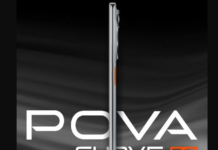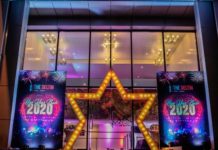- Black pigments from LANXESS used in the construction of the world’s northernmost gin and whisky distillery
- Colored concrete recreate deceptively genuine-looking imitation aged wooden planks
Cologne, May 23, 2020: The new barrel storage facility for the world’s northernmost gin and whisky distillery appears at first glance to be clad in old, charred wooden planks. In reality, however, the facade is constructed from textured concrete pigmented with a jet-black pigment. The facade, which won the Finnish Concrete Architecture Award, is colored with inorganic Bayferrox pigments from the specialty chemicals company LANXESS. This stylish building, owned by the Kyrö Distillery Company, was designed by Helsinki-based Avanto Architects (Avanto Arkkitehdit Oy).
Inspired by traditional wooden barns
It all began with a “spirited” idea: Five Finnish friends enjoying a floating sauna came up with the idea of establishing the Kyrö Distillery Company, which started operations in an old dairy facility in 2014. The distillery won numerous international awards, and, as its reputation grew, the production facilities could no longer keep pace with demand. So Kyrö organized a closed competition for the redesign of the entire dairy complex. Avanto Architects was chosen to create a master plan involving the design of several new buildings and the renovation and conversion of the old historic buildings on the factory grounds. The Helsinki-based team’s first task was to design a jet-black, 1,056-square-meter barrel storage facility situated in the middle of the forest and inspired by traditional wooden barns. This building will be one of five identical buildings to be constructed on the site.
More than just a warehouse…
The barrel storage facility is more than just a warehouse – it is an essential part of the production process. For whisky even to be allowed to carry the name “whisky,” it has to be aged for at least three years in oak barrels. This is why such vast amounts of storage space are needed, even if it is impossible to predict how well the final product will sell after such a long aging period.
Furthermore since whisky is a flammable liquid, the strict fire safety regulations for barrel storage facilities pose yet another challenge. This is why the storage facility was divided into five sections, each with precisely regulated temperature and humidity. The amount of ethanol that evaporates into the air is also closely monitored to prevent the risk of explosion.
The facade of the barrel storage facility is inspired by the wooden barns typically found in the region. The outer wall is constructed from standard 4.5–6 m x 3 m sandwich elements (outer shell: 105 mm reinforced concrete; stainless-steel reinforcement, stress class: XC3.4, XF1; 150 mm polyurethane insulation; inner shell: 80 mm reinforced concrete).
What makes this building really special is the outer shell, which recalls the appearance of old Ostrobothnian floorboards. To produce the facade elements, the Finnish precast concrete manufacturer Tara-Element was supported by the mold manufacturer Finn-Form. Instead of freshly cut timber, the boards from an old, dismantled barn were used as a template for the facade matrices. Suitable pieces were chosen and put together with as little repetition as possible.
All loose material was then removed from the boards, which were treated with resin to make them sturdier, converted to create a negative cast and then poured into the mold. The two different 1,500 mm x 4,500 mm molds – one the right way up and the other upside down – create a pattern that is repeated only every six meters. Almost one thousand kilos of casting resin were ordered from France for the facade matrices.
Black concrete: the ultimate skill
“The original plan was to construct the concrete elements with colored concrete and then paint them darker on the construction site,” says Oliver Fleschentraeger, Market Segment Manager Construction for the Inorganic Pigments (IPG) business unit at LANXESS. “After several trial castings, the deep-black LANXESS pigment Bayferrox 360 was added at a dosage rate of 5 percent by weight of pigment calculated on the cement content, which meant that no additional coat of paint was actually needed,” adds the experienced application engineer.
Using synthetic iron oxide pigments in concrete and ensuring that clients get the colors they want requires extensive technical and application expertise – especially with black pigments. “Producing jet-black concrete is the ultimate skill,” says Fleschentraeger. Ensuring that the concrete has exactly the right shade even after it has hardened depends not only on the quality and mixing of the pigments, but also the cement type and concrete aggregates. “This process requires detailed knowledge of how the concrete and pigment interact,” says Fleschentraeger.
This is why the pigment manufacturer also supported the planners in the construction of the barrel storage facility. The tight budget meant that a standard concrete aggregate (K-40) was used in this project along with Finnsementti white cement, which acted as a binder and further enhanced the color. The results speak for themselves: The pigmented, textured concrete creates a deceptively accurate illusion of weathered timber. In late 2019, the architects were awarded the Finnish Concrete Architecture Award for the facade of Kyrö Distillery’s new barrel storage facility. “The highly expressive facade of the barrel storage facility is not only a brilliantly realized solution, but also part of a functioning production unit whose design and workmanship fulfill the requirements of good architecture and construction in an exemplary manner,” said the jury chairman Tuomo Hahl.
Corporate Comm India(CCI Newswire)



























